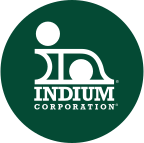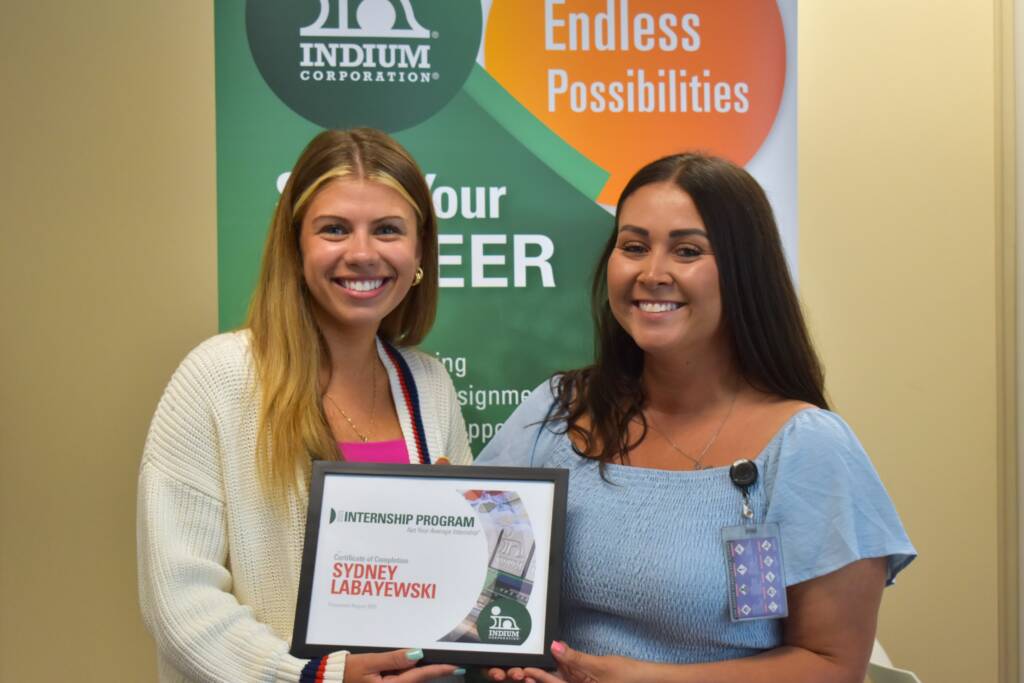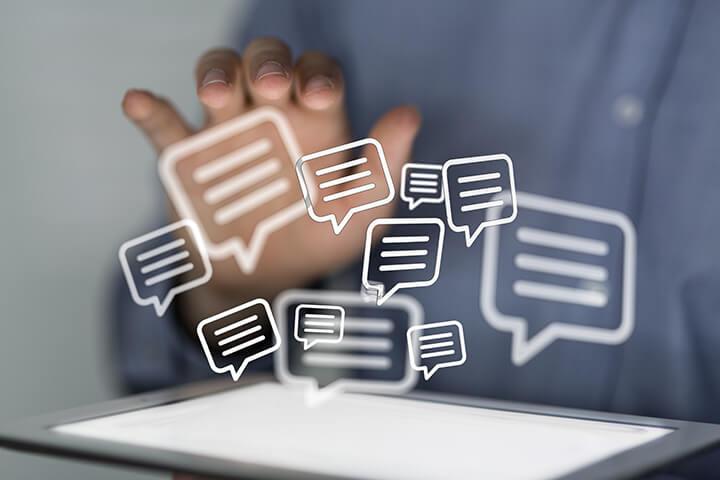It is always important, sometimes critical, to come off well when interviewed. Most often the interviewer is an industry (or larger) celebrity and the printed or videoed story/article will appear in an influential trade journal, website, or blog. The third-party credibility, maybe even endorsement, lent by being interviewed by a prestigious personality or publication could be very valuable to your organization. The command, albeit brief, of the media's audience – your target audience – is highly desired. Other times you may be communicating with an internal team – the people you work with every day. Additionally, you may be interviewed by your local news media for good, or not so good, reasons. It's never been easier to capture your thoughts, in audio, in writing, on video, and share them with your key decision makers and stakeholders. This is show time, people!
Now, given that performing well in an interview opportunity is important, how many times have you heard someone express satisfaction in having "nailed it"? How many times have you heard people (maybe even yourself)say, upon reading or viewing the final product, "Icame off exactly as Ihad hoped!My message is so clear and concise"? Yeah, same here.
Most people don't know how, let alone what, to prepare when facing an interview opportunity. Consequently, many DON'T prepare. And we all know the old saying, "When you fail to plan you can plan to fail."

Ireally hand it to Michele for accepting responsibility for her interview, and for being bright enough to reflect upon the experience in an effort to correct herself. Let's use some of these lessons to help you.
You don't have to fail in an interview setting. Here's how to nail it.
#1:BEGINATTHEEND:Have an interview GOAL. Visualize how you want the interview to flow – how you want to appear – what you want to say – where you WON'T go – and what you want the audience to take away. Imagine the flow of the interview and the duration of an interview that would concisely cover your ground. Imagine that, immediately after experiencing your interview, your target audience responds EXACTLY as you hope they would. Do your best to visualize, to see in your mind, the perfect interview – the interview that achieved your desired results. Hey, if you don't know where you're going you'll never get there.
#2:ORGANIZE YOURNUGGETS:Now that you know what you want to talk about, how much time you want to take to get it out (or comprehend it – from the audience's perspective), and how you want to be perceived, start organizing your data. In an interview you will be telling a story. In the business to business arena information should be arranged in the reverse order of your favorite drama book or movie. So put your conclusion right up front. Secondly, discuss the situations that make your product or service important. Thirdly, cite some facts that support your point. Finally, end with your conclusion. In other words,"Tell 'em what you're gonna' tell 'em … Tell 'em … Tell 'em what you told 'em."
"Data" also includes what you look like (in a video interview, or when a photo of you is used). Looks matter. Dress appropriately for the issue, topic, industry, and the audience. This is NOT a last-minute, "Oh, what shirt should Iwear?"-type of thing. This must be planned – in advance.
Final point on this topic:WRITEIT ALLDOWN. Type it in, write it down. You will be amazed how much things change the moment they are put into writing.
#3:WORKWITHTHEINTERVIEWER:Understand that any media representative has an important job to do. Know that most are professional. Also know that, in some situations, some people are willing to let you talk as much as you like – and then will edit things down considerably. Make it a point to prep the interviewer, as long before the interview as possible, of precisely WHATyou want to talk about, what you will not (or can not) talk about, the points you need to make, and how you hope the interview will go. During such a conversation it will become clear that either the interviewer will cooperate with your intentions or that they are on a different agenda.
Mass media celebrities, like Michelle – above, are often used by the media to attract eye balls. The juicier the interview the better. People like her have a much harder time cooperating with the media than we in the B2Barena do. In our world, interviewers and editors alike appreciate and desire brief, concise, useful content. You will find that the media will appreciate your organization and focus. That said, do NOT expect the media to simply accept highly-commercial blatherings. They have professional integrity and must stick to professional standards.
 Another element of "working with the interviewer" involves you, as the Marcom leader, accompanying your engineer (or other person being interviewed)to the interview. Take some of the stress off of them by handling minor chores for them. For example, if at a trade show, take a quick final look at your colleague:remove their exhibition badge, take all the pens and metal rulers from their shirt pocket, etc. In addition, add further value by doing things the interviewee could never do. Monitor the interview – chime in when you see a chance to improve things. Whether it involves lighting, camera angle, content, flow, or even the need for a quick break – you can add value from the sidelines. In the image (right) Iwas monitoring the video capture on the interview technician's computer. Inoted people in the background and other potential distractions. Be sure the interviewer is prepared for your involvement. CAUTION:Do not be a "stage mom". Everyone hates that person!
Another element of "working with the interviewer" involves you, as the Marcom leader, accompanying your engineer (or other person being interviewed)to the interview. Take some of the stress off of them by handling minor chores for them. For example, if at a trade show, take a quick final look at your colleague:remove their exhibition badge, take all the pens and metal rulers from their shirt pocket, etc. In addition, add further value by doing things the interviewee could never do. Monitor the interview – chime in when you see a chance to improve things. Whether it involves lighting, camera angle, content, flow, or even the need for a quick break – you can add value from the sidelines. In the image (right) Iwas monitoring the video capture on the interview technician's computer. Inoted people in the background and other potential distractions. Be sure the interviewer is prepared for your involvement. CAUTION:Do not be a "stage mom". Everyone hates that person!
#4: ESTABLISHTHE TIME, PLACE, DURATION, ANDSETTING:You may or may not be in control of all these factors, but you MUSTunderstand them, to the best of your ability. If possible, familiarize yourself with EVERYaspect of the interview situation:the room, the equipment, the people in the room, etc. Your goal here is to OWNthe setting so that you are very comfortable. With comfort comes strength, composition, and command. When you're feeling great, you are better able to stick to your plan and reach your goal.
#5: REHEARSE:We all know about standing in front of a mirror and going through your "speech". Here I'm talking about much more than that. In an interview you are an actor – especially in audio and video. You have a voice, a style, a vibe. Take control of all that – rehearse the way you want to be seen and heard. Ideally (if preparing for a video interview) video yourself answering questions – any questions. It's cheap, fast, and easy to do. Then watch yourself. You will see so many things that you can't observe without the video. Countless nuances will catch your eye. You will note your posture, your attitude, your tone of voice, your hand motions, your eye contact, your words, all the pens in your pocket.
YOURWORDS: Pay attention to every interview that you enjoyed experiencing. Note how infrequently successful speakers say words such as: umm, you know, uh, wanna', gonna', etc. Nothing erodes credibility as quickly as hearing a person stammering, stumbling, and relying on "comfort words". Ya' know?
A video or audio rehearsal (on any topic) will reveal many subtleties. This will be a great help in your preparation and toward reaching your goal.

Rehearse, and feel comfortable, saying, "That is something I am not prepared to discuss at this time", when necessary. Don't feel bad if you need to say it. In fact, feel GREATsaying it. You will be keeping yourself out of hot water when you use this properly. Additionally, if you have already prepared the interviewer to not go there, you will typically get positive affirmation even from them.
 #7: ARRIVEEARLY:You being comfortable and relaxed will transfer to the interviewer and to your audience. It's the same when you are harried, stressed, and off balance. Arrive early, feel great, own the space, and shine.
#7: ARRIVEEARLY:You being comfortable and relaxed will transfer to the interviewer and to your audience. It's the same when you are harried, stressed, and off balance. Arrive early, feel great, own the space, and shine.
#8: GETINANDGETOUT:There's an old saying in the sales world:"When you've made the sale, stop selling."It is appropriate in the interview world, as well. Remember, you are not ever as fascinating or brilliant as you think you are. You will do yourself a great service by sticking concisely to your planned message and wrapping it up very quickly. Get in and get out. You will very likely shoot yourself in the foot by prolonging the interview process. The more you say, the more the interviewer has to work with. Then, the decision regarding what gets published and what gets left out rests with the media – not you. If you only say three crisp, clear, and concise points – that is likely all that will get published. YOURmessage!
Any doubts?Just read the article that Iposted above regarding Michelle Williams' interview regrets. The word she used to describe the results of her protracted, rambling interview was, "devastated". Do you want to hear that word from your boss?
#9: REQUEST AHANDINTHEEDITING:Some interviewers will scoff at the idea of you being involved in post production. Others will allow you to see the final product candidate and will accept ideas from you. A third group will actually WELCOMEyour offer. It can't hurt to ask. Approach it from perspective of "fact checking" and organization enhancement. I've rambled through an interview, expressed my regret at not crafting my thoughts better, asked to see the transcripts, then submitted my edited version. It can work.Always ask, respectfully. That said, always give an interview with the belief that you will NOThave any chance of being involved with the editing – be safe.
#10: STUDY &IMPROVE:Read your interview (or watch the video). Consume other people's interviews. Become a student of interviews. Know the ways of specific industry media, adopt the behavior of star interviewees. Even if you are a fumbling rookie today, you can be a sought-after industry celebrity – with a little polish.
#BONUSPOINT: BECOMETHEINTERVIEWER:If you have already accepted the mantra of "be the publisher"then you are ready for the next step. When you have a juicy point to purvey, interview your engineers, your product line managers, your tech support team, yourself, etc. Put these writings, audio files, and videos on your website, on your YouTube channel, in your blogs, etc. It's a great way to offer a variety of presentations to your target audience.Heck, you can even offer "multi-modal" presentations. Try slipping a video interview with a key customer into a PowerPoint presentation made to other customers, or to your internal audience. Variety is the spice of life!
Interviews happen. GREATinterviews are earned. Your work isn't done once you've earned the right to be interviewed – you've also got to earn great results during the interview. These tips should help. Let me know.


